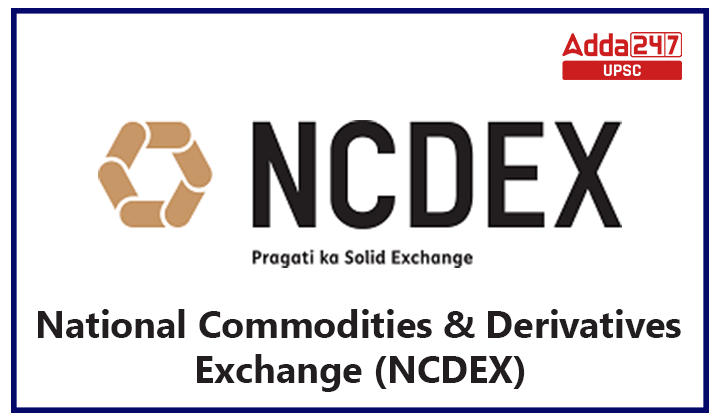Table of Contents
National Commodity & Derivatives Exchange Limited (NCDEX)
The National Commodity & Derivatives Exchange Limited (NCDEX or the Exchange) is a prominent Indian agricultural product exchange holding a significant market share in the agricultural products segment. Governed by a Board of Directors with extensive experience in the agricultural products market, NCDEX is dedicated to offering an exchange platform for market participants interested in trading agricultural products. Established as a public limited company on 23 April 2003 under the Companies Act 1956, NCDEX commenced its operations on 15 December 2003.
How is the NCDEX regulated?
The NCDEX operates under the regulatory oversight of the Securities and Exchange Board of India (SEBI). Governed by a range of laws, including the Securities Contracts (Regulation) Act, of 1956, the Companies Act, the Contract Act, and other relevant legislations specified in the Indian Penal Code, the exchange ensures compliance with established regulations. The NCDEX’s headquarters are situated in Mumbai, providing facilities to its members through centers distributed across various locations in India.
SEBI’s regulation of NCDEX encompasses various aspects, including:
- Licensing and Registration: SEBI grants a license to NCDEX to operate as a commodity exchange and register its products and contracts.
- Market Surveillance: SEBI closely monitors the trading activity on NCDEX, including order book data, market trends, and price movements. It utilizes surveillance tools and techniques to identify and address any manipulation or market abuse.
- Risk Management: SEBI sets risk management guidelines for NCDEX, including margin requirements, position limits, and segregation of client funds. NCDEX is responsible for implementing and enforcing these guidelines to protect market participants from systemic risks.
- Transparency and Disclosure: SEBI mandates NCDEX to maintain transparency in its operations, including providing timely and accurate market data, public disclosure of relevant information, and conducting regular audits.
- Code of Conduct: SEBI enforces a code of conduct for NCDEX members and employees, ensuring ethical and fair trading practices.
- Investigation and Enforcement: SEBI has the authority to investigate any violations of regulations or market abuse at NCDEX. It can impose penalties, including fines and suspension of trading privileges, on errant entities.
- Policymaking and Guidance: SEBI provides guidance and recommendations to NCDEX on market development, risk management practices, and technological advancements.
- Regulatory Harmonization: SEBI coordinates with other regulatory bodies, such as the Forward Markets Commission (FMC), to ensure a consistent regulatory framework for commodity markets in India.
SEBI’s rigorous regulatory oversight of NCDEX contributes to the stability, efficiency, and transparency of India’s commodity markets, safeguarding the interests of market participants and fostering a fair and competitive trading environment for agricultural commodities, metals, and energy products.
NCDEX Trading Commodities
As of December 2017, the National Commodity & Derivatives Exchange Limited offers trading opportunities for 29 distinct agricultural commodities. These commodities, constituting a significant portion of India’s global trade, encompass pulses, spices, and guar. Notably, these particular commodities hold economic importance for India, yet they are not traded on major international exchanges.
What Does NCDEX Primarily Trade?
The National Commodity & Derivatives Exchange Limited boasts a diverse range of approved agricultural commodities, totaling 23—the highest among exchanges. Among these commodities are items like pulses, spices, and guar. Notably, these commodities hold economic significance for India and constitute a vital component of the country’s global trade. It’s worth mentioning that some of these, such as pulses and guar, are not commonly traded on global platforms, making them uniquely relevant to India’s economic landscape.
Benefits of NCDEX
- NCDEX has established and maintained an online futures market for crops, contributing significantly to increased market transparency.
- The exchange aids Indian farmers in the price discovery process, allowing for a more accurate valuation of goods, even for those not actively participating in the futures market.
- In the past, middlemen, or commission agents, controlled much of the market information in India; however, the introduction of online commodity exchanges like NCDEX has reduced the cost of price data for farmers by eliminating intermediaries.
- NCDEX has played a key role in improving Indian agricultural practices by standardizing quality specifications through contracts and raising awareness about product quality.
- Farmers in India are increasingly focusing on testing requirements and adopting farming practices that result in consistently high-quality crops, thanks to initiatives by NCDEX.
- Despite being relatively young by some standards, NCDEX has already seen traders and large market participants using contracts for hedging and speculation.
- This trend is expected to continue as India’s agricultural sector grows in terms of productivity and exports.
NCDEX – AGRIDEX
The NCDEX AGRIDEX index monitors the performance of ten highly liquid commodities traded on the NCDEX, representing the country’s inaugural return-based agricultural futures index. This index comprises a basket of ten commodities chosen for their liquidity on the exchange, and it serves as a benchmark for replicating the performance of these underlying commodities.
The value of the NCDEX AGRIDEX is determined by both spot and future prices of the following ten commodities: soybean, chana, coriander, cottonseed oilcake, guar gum, guar seed, mustard seed, refined soy oil, castor seed, and jeera. Covering a spectrum of agricultural products from both the Kharif and Rabi seasons, this index provides a comprehensive reference for prices. Additionally, by offering insights into anticipated product prices, AGRIDEX aids participants in effectively hedging their commodity-related risks.
| Relatable Article | |
| Indian Companies Act | Indian Penal Code |




 TSPSC Group 1 Question Paper 2024, Downl...
TSPSC Group 1 Question Paper 2024, Downl...
 TSPSC Group 1 Answer key 2024 Out, Downl...
TSPSC Group 1 Answer key 2024 Out, Downl...
 UPSC Prelims 2024 Question Paper, Downlo...
UPSC Prelims 2024 Question Paper, Downlo...
